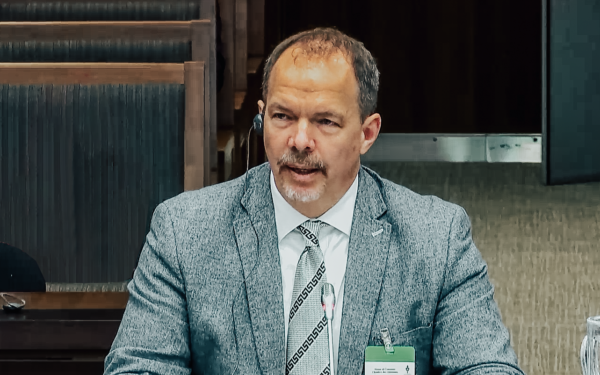The effect the Internet has had on the sharing economy and how customers must adapt.
We all know the Internet has dramatically changed the business environment for many industries. From the music industry to journalism and publishing, businesses all over the world have had to adapt since the Internet took hold as a vehicle for commerce more than a decade ago.
Now we have the sharing economy. If its profile in the media is any indication, new companies like Uber and AirBnB represent a disruptive force with the potential to dominate the travel industry. It’s even become political theatre in the U.S. presidential race.
However, I see one crucial difference between the effect the Internet has had on industries in the past and today’s sharing economy. It’s no longer just the businesses that need to adapt, it’s the customers as well. While the sharing economy is the very definition of bleeding edge, the age old principle of caveat emptor – buyer beware – is arguably more important now than ever before.
When you book a room with a Fairmont, Sheraton or even a Super 8, you can reasonably expect consistent quality and service regardless of where you are in the world. You can trust that the pictures on the company’s website are an accurate representation of the room you are booking, and you won’t arrive to find a room in Bob’s ‘we-haven’t-changed-the-sheets-since-the-Reagan-administration’ Motel.
This isn’t the case with AirBnB. I speak from experience, having recently booked an apartment in Berlin through Airbnb for a family vacation. I did what I believed to be my due diligence, reading the reviews, checking out the street view of the location, scrutinizing the photos, and so on. However, what appeared to be a Bauhaus-inspired apartment in the photos turned out to be the worst example of Soviet brutalist architecture not renovated since Brezhnev was leading the Soviet Bloc. Suffice to say, what was promised on the AirBnB website was most definitely not what was delivered, leaving me wondering what it would take to ensure a property is how it is presented online.
If all you have to base your decision on is crowdsourced reviews and host-selected photos online, what does it take to ensure your expectations are met?
How many reviews are enough to make an informed decision? 50? 75? 300? It matters. In the statistics world, sample size is critical to the credibility of a poll. Survey a little more than 1,000 Canadians and you get a reasonably accurate picture of where Canadians stand on a given topic. Drop that sample size to 750 and your results could be off by 30 per cent or more. So then what’s the magic number in the online review world to achieve a degree of accuracy? I don’t have the answer, but I think it’s something we are going to have to figure out.
Even more important is the honesty of the reviewers. It is human nature to be reticent of being critical of others. Undoubtedly, social norms dictate the tone of a review we leave for a transaction as intimate as staying at someone’s home, even if we are paying for it. And while AirBnB changed its review process last year to encourage more honesty, the fact remains that properties listed on AirBnB are vastly overrated. Researchers from Boston University studied more than 600,000 properties listed on AirBnB and found that “nearly 95% of Airbnb properties boast an average user-generated rating of either 4.5 or 5 stars (the maximum); virtually none have less than a 3.5 star rating.” Clearly not all properties on AirBnB deserve a 4 or 5 star rating, yet this is the information we have to base our travel decisions on. The system is far from ideal.
If the Internet is the foundation upon which the sharing economy is built, then reviews are the glue that holds the whole thing together. Right now, I don’t think we have the review part down, but I believe it is a critical piece of establishing long-term trust in the sharing economy.
I travel a lot, often to some of the most far flung places in the world where North American standards for hotels simply don’t apply. I’ve stayed in rooms where the best you can hope for is that the cockroaches stay on the floor and don’t make it on the bed. That’s fine(ish) if you know that’s what to expect. But when the expectations are set at a certain level by the photos and the description on the website, I have a problem.
There’s one other piece that I think is missing from the AirBnB model – accountability. After spending one sleepless night in L’ hotel Gulag,we decided to cancel the rest of our stay. Instead, we opted for a hotel, having emailed the property owner explaining the situation, as well as committing to pay for that night and the cleaning fee. Hearing nothing back, I made my case to the AirBnB Resolution Center once I arrived back in Canada. I explained that the property was not what it was presented to be on the AirBnB site and fully expected to be reimbursed for the nights for which we had paid for but not used.
Within a couple of days, AirBnB informed me that I would not be getting a refund. As AirBnB is essentially a third party broker, they apparently have no obligation to ensure the photos and property descriptions posted on their site are accurate. They’ll take their ‘booking fee’ (anywhere between six and 12 per cent), but that’s where their interest in the transaction ends.
The sharing economy folks did get one thing right, though – the name. ‘Sharing economy’ is one of the best examples of spin in the business world I’ve seen in a long time. Let’s be frank, nobody’s sharing anything. Renting a property on AirBnB is a business transaction – one party pays another party for the use of idle resources and AirBnB – the broker for the transaction – takes a cut. The entire transaction takes place in regulated markets, but because it’s been labeled ‘sharing’, it manages to do so without the overhead or oversight that traditional players in the market are subject to. From what I recall from my kindergarten days, that’s not how sharing works.
The result has been incredibly lucrative for a few people. Travis Kalanick from Uber is worth $6 billion, Brian Chesky from AirBnB is worth $2 billion. The early entrants in the industry are exploiting a regulatory loophole, leaving little to no recourse when things go wrong. Sharing economy indeed.
My AirBnB experience did have an ironic twist. On the flight back to Canada from Berlin, I read this article in the New York Times. It seems I’m not the only one whose experience parodied a performance art project.
Without a guarantee of the quality of the booking (either through reliable crowdsourced reviews or a process to ensure a refund if the property doesn’t live up to reasonable expectations), it’ll be a warm January day in Siberia before I use AirBnB again (unless Mr. Chesky is willing to give me a refund out of his multi-billion dollar bank account?).
Byron Holland (MBA, ICD.D) is the president and CEO of the Canadian Internet Registration Authority (CIRA), the national not-for-profit best known for managing the .CA domain and developing new cybersecurity, DNS, and registry services.
Byron is an expert in internet governance and a seasoned entrepreneur. Under Byron’s leadership, CIRA has become one of the leading ccTLDs in the world, with over 3 million domains under management. Over the past decade, he has represented CIRA internationally and held numerous leadership positions within ICANN. He currently sits on the Board of Directors for TORIX, and is a member of the nominations committee for ARIN. He lives in Ottawa with his wife, two sons, and their Australian shepherd, Marley.
The views expressed in this blog are Byron’s opinions on internet-related issues, and are not necessarily those of the organization.




